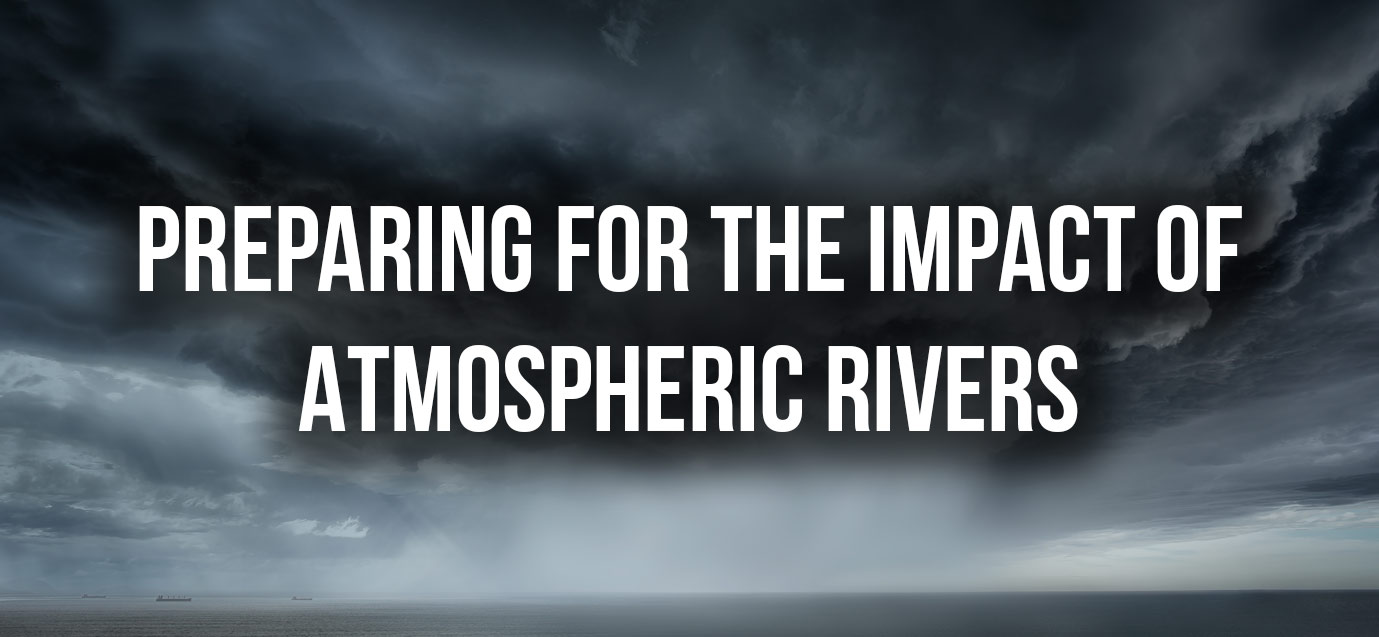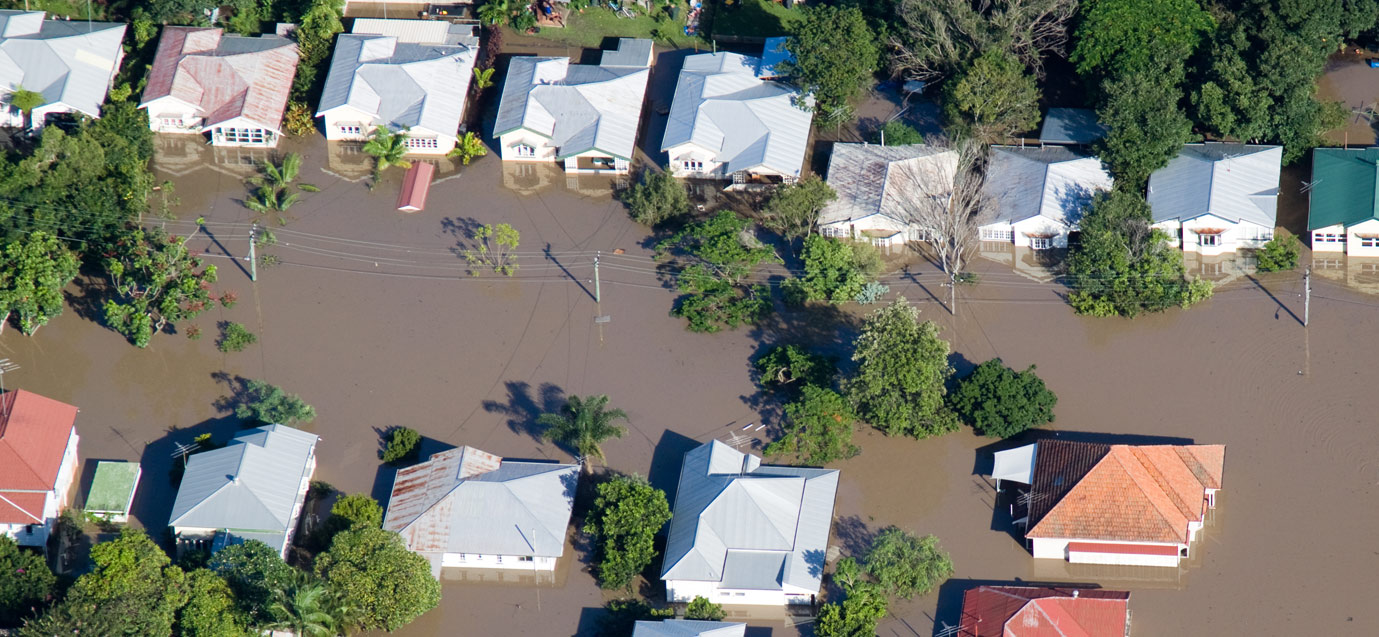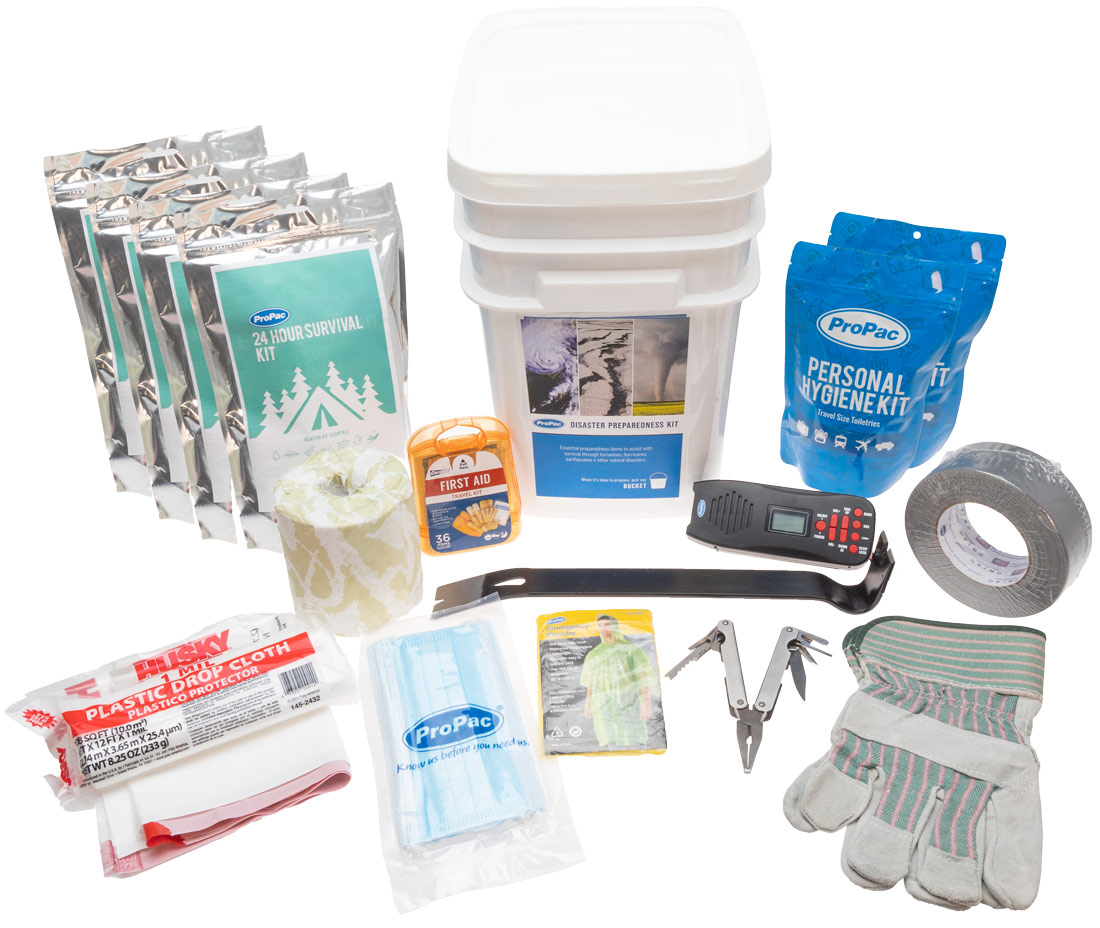
Preparing for the Impact of Atmospheric Rivers
Tuesday March 14, 2023
The National Oceanic and Atmospheric Administration defines an atmospheric river (AR) as "relatively long, narrow regions in the atmosphere – like rivers in the sky – that transport most of the water vapor outside of the tropics. These columns of vapor move with the weather, carrying an amount of water vapor roughly equivalent to the average flow of water at the mouth of the Mississippi River. When the atmospheric rivers make landfall, they often release this water vapor in the form of rain or snow."

Atmospheric rivers have piqued the interest of both the scientific and extreme weather communities due to their potential benefits and risks. The transfer of moisture from tropical regions can benefit communities by replenishing snowpack and reservoirs with clean water, improving access to potable water, and supporting local biodiversity. However, this benefit comes with a downside as ARs can also trigger extreme weather events, such as flooding, landslides, and disruptions to daily life. This risk of severe weather-related hazards is particularly high when an AR stalls over an already saturated watershed.
There are several steps individuals and communities can take to prepare for and stay safe during an atmospheric river event:
1. Stay informed: Monitor weather forecasts and emergency alerts from local authorities to stay up to date on changing conditions and potential hazards.
2. Prepare an emergency kit: Put together an emergency kit that includes basic supplies like food, water, and first aid items. Be sure to include supplies for pets and consider any unique needs you or your family members may have.
3. Protect your property: Clear debris from gutters and drains to prevent water from accumulating and causing flooding. If you live in an area prone to landslides, consider installing barriers or other protective measures to minimize damage.
4. Evacuate if necessary: If local authorities issue an evacuation order, follow it promptly and move to higher ground or a safe shelter.
5. Avoid traveling during AR events: If possible, avoid traveling during atmospheric river events, as road closures and other hazards can make travel dangerous.
6. Have a plan for staying connected: Make sure you have a way to stay connected with loved ones and emergency services in case of power outages or other disruptions to communication.
Stay vigilant during atmospheric river events. Being prepared for weather emergencies can save lives, reduce property damage, and help communities recover faster. For more tips check out our Preparedness Tips Before & After a Flood.
Shop our most popular flood preparedness products:
ProPac Clean-up Kit

Tarp 20x20'

Sandbags, 14x26

ProPac Disaster Kit
